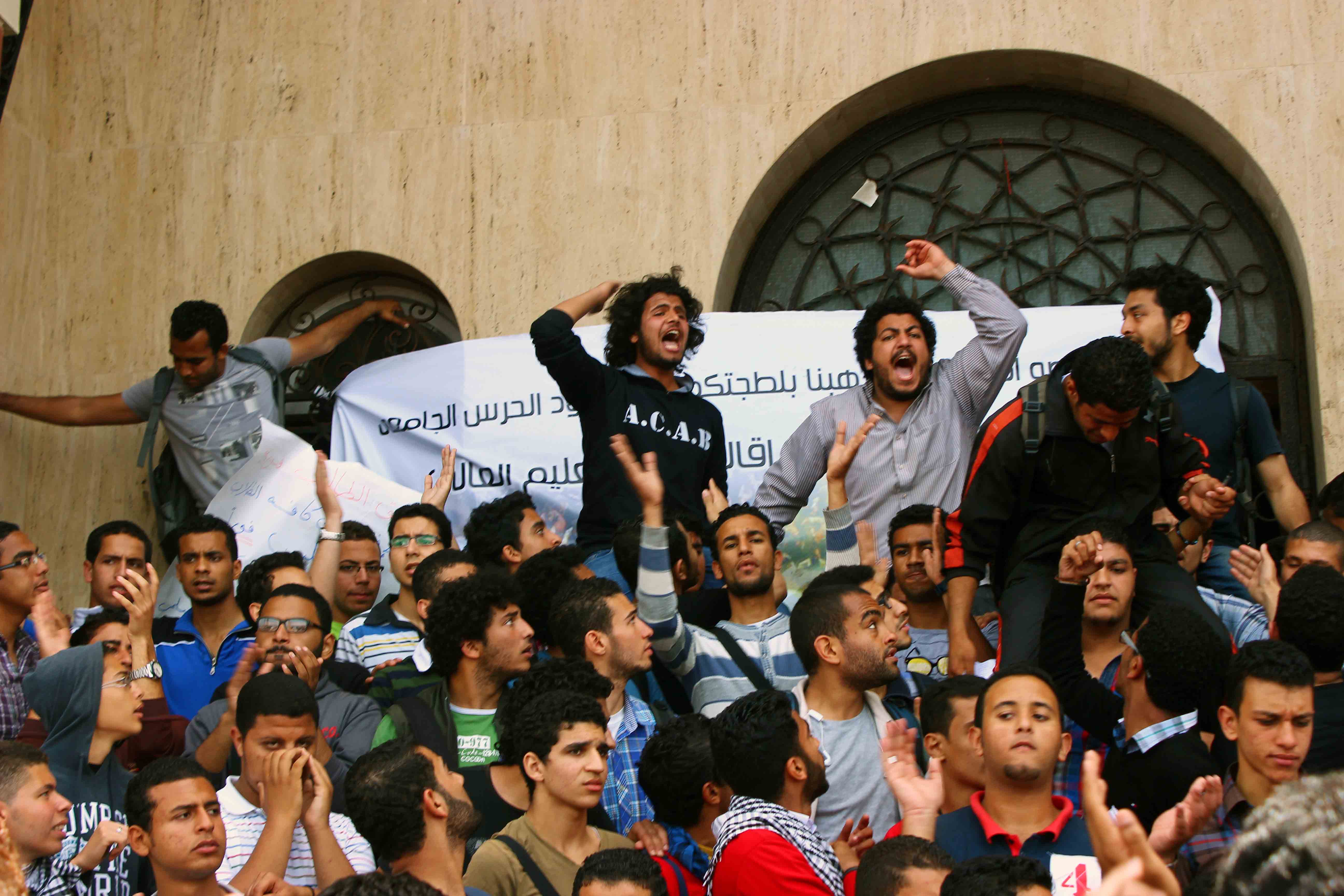The few who follow midterm elections are not optimistic regarding American plans for the region
CAIRO: In the United States, excitement over the midterm elections reached fever pitch on Tuesday night as the Democratic Party was poised to overrun the Republicans in both branches of Congress: the Senate and the House of Representatives.
But for many Egyptians, midterm elections in their Western ally merely conjured up confused looks.
Only a few people The Daily Star Egypt spoke with could make out the difference between Democrats and Republicans – a distinction that isn’t common knowledge in Egypt. Even the term “midterm elections inspires many confused looks.
Held every two years, the midterm elections feature competition over all of the 435 seats in the US House of Representatives and 33 or 34 seats of the total 100 in the US Senate as well as a number of governor posts. This year saw a majority win for the Democrats in all three fields and the first Muslim elected to Congress.
Keith Ellison, the first Muslim in Congress, won with a platform that advocated withdrawal from Iraq, a prominent sentiment in many Democratic campaigns.
Although some American-based reports indicate that the change of votes in favor of the Democratic Party candidates was mainly due to recent scandals associated with Republicans, the war in Iraq played a prominent role in bringing about the final results.
“The Democrats win is more than a rejection of the Iraq war by the American people, and portraying it that way is an oversimplification. It is a rejection of foreign, domestic and even human rights policies, said Amira Ahmad, an Egyptian-American who has lived in Egypt since 2000.
“All of this has to change, she added, “And the Democrats win could very much be looked at as an indicator that we are now on the right track. However, we cannot be too eager in celebrating the win or set our expectations too high.
Hani Abdel Kawi, a software engineer, agreed. “[American policy in the Middle East] never changes dramatically, he explained.
“At the end of the day, they are all the same, and the backbone of the offices there is still the same – following the Israeli lobby, he added. “So a change might be at the beginning but sooner or later, the ugly face will show up.
Nabil Abdel Fattah, a political analyst at Al Ahram Center for Political and Strategic Studies, affirmed that there are certain strategic interests and guidelines that won’t change in American policy with the change in political parties.
However, there are differences in the course of achieving these interests, he added.
While the Democrats will try to improve the US image in international society by adopting “softer polices, Abdel Fattah expects their policies regarding Egypt to remain unchanged.
He explained that the US needs Egypt as a mediator in regional conflicts, and consequently would not risk its internal stability by pressuring for certain reforms. Sources of instability, such as sectarian strife, inefficiency of the parliament, opposition dissatisfaction and dispute between the judiciary and the executive powers, will lead the US to be cautious in putting pressure on the system so as not to undermine its authority, he added.
“There is no alternative for the ruling system and the Muslim Brotherhood, he said. The US is wary of the latter after the Hamas experience in the occupied territories, he added.
Unlike Egypt, there is a foreseeable change in Iraq. “Democrats want to achieve stability in Iraq . and pull a large number of troops, Abdel Fattah noted. The Democrats, he continued, want to cut losses and improve the American image in the world.
Ahmad, however, said any potential change won’t be one sided. “We cannot just sit back and wait, taking comfort in the fact that Democrats now have control of the House, hoping that they have the same vision for the region that we do.
He added, “The Arab and Muslim worlds need to take the initiative to start communicating with representatives now, before it is time for the presidential elections. More importantly, we need to create an active and productive dialogue with Arabs and Muslims living in America so we can all work together to create the kind of world we envision.
“Americans have voted, they have made their voices heard and their choice is clear. Now, it’s time for us to do our part.

